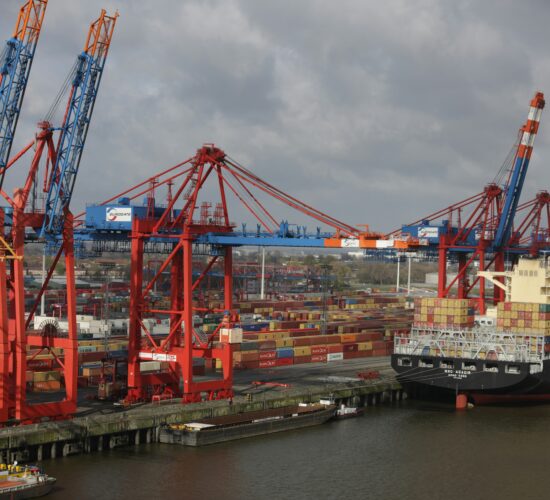The Importance of Cybersecurity in Modern Logistics Operations

Logistics operations has become the backbone of global trade in today’s fast-paced world. Moving goods across cities and countries relies heavily on technology. As a result, cybersecurity in logistics operations has grown from a minor concern to a critical necessity. Without strong protection, companies face serious risks that can disrupt and damage reputations.
Technology now controls much of the logistics process. From warehouse management to transportation tracking, digital tools connect every step. While these tools boost efficiency, they also create new points of vulnerability. Cybercriminals look for weaknesses in these systems to steal data, disrupt shipments, or demand ransoms. Understanding why cybersecurity helps logistics leaders protect their businesses and maintain client trust.
The Growing Role of Technology in Logistics
Modern logistics depends on advanced technology to keep goods moving smoothly. Automated inventory systems monitor stock levels in real time. GPS tracking lets companies follow shipments as they move. Digital platforms connect suppliers, warehouses, and delivery drivers for seamless coordination. This digital shift speeds up operations and reduces errors.
However, the heavy reliance on digital systems opens up risks. Consequently, a system going offline due to a cyberattack can halt shipments and delay deliveries. Sensitive data such as customer information, payment details, and shipment routes becomes vulnerable. Protecting these digital assets is now just as crucial as managing physical goods.
How Cyber Threats Impact Logistics
Cyber threats come in many forms, and logistics firms face unique challenges. One standard attack is ransomware, where hackers lock companies out of their systems and demand payment for access. Such attacks can freeze warehouse logistics operations and paralyze distribution networks.
Data breaches pose another serious risk. Hackers may steal client information or proprietary data. This loss can lead to legal penalties and damage trust. Any disruption can have ripple effects across the supply chain in an industry where timing and accuracy are crucial.
Phishing scams also target logistics employees. Fraudulent emails trick staff into sharing passwords or clicking harmful links. A single compromised account can allow hackers to access sensitive systems.
Each attack threatens business continuity and can also cause financial loss and reputational harm. For logistics companies, these consequences are often severe due to tight delivery schedules and customer commitments.
Building Strong Cybersecurity in Logistics
Creating a strong cybersecurity posture starts with awareness. Everyone involved, from executives to frontline workers, needs training on cyber risks. Educating staff on safe online habits reduces the chances of falling victim to scams.
Logistics companies must also invest in robust security technologies. Firewalls, encryption, and secure access controls help shield systems from intrusions, and regular software updates patch vulnerabilities before hackers can exploit them.
An apparent incident response plan prepares teams for quick action if an attack occurs. Minimizing downtime is critical in logistics, so having backup systems and recovery procedures can save valuable time.
Collaboration with trusted cybersecurity experts offers ongoing monitoring and advice. These specialists help detect threats early and improve defenses as new risks emerge.
Protecting Customer Trust and Business Reputation
In logistics, trust is a key asset. Clients depend on companies to deliver goods on time and keep their data safe. A cyberattack that exposes customer information can quickly erode confidence.
Companies that prioritize cybersecurity show customers they value protection and reliability. This commitment can become a competitive advantage in a crowded market.
On the other hand, failing to secure systems can lead to costly lawsuits and lost contracts. Negative publicity from data breaches or service interruptions hurts long-term growth.
Logistics firms maintain strong relationships and support steady business expansion by safeguarding digital assets.
Future Trends and Ongoing Challenges
As technology evolves, so do cyber threats. The rise of the Internet of Things (IoT) adds new devices connected to logistics networks. Each device offers convenience but can become an attack entry point if not properly secured.
Artificial intelligence and machine learning provide powerful tools for detecting threats but require careful management to avoid new risks.
Global logistics operations face added complexity with different regulations and security standards in each country. Navigating these rules requires constant attention and adaptation.
Despite challenges, staying ahead in cybersecurity is possible with continuous investment, training, and innovation. Companies that embrace a proactive approach position themselves for safer, more efficient futures.
Cybersecurity is no longer optional in modern logistics. It protects the technology that drives logistics operations, defends sensitive information, and preserves customer trust. Logistics companies can keep goods moving securely in an increasingly digital world by understanding the risks and taking clear steps to strengthen defenses.
Additional Information
- Blogs
- cyber risks, logistics process, sensitive information
- Ari Raptis